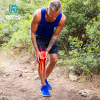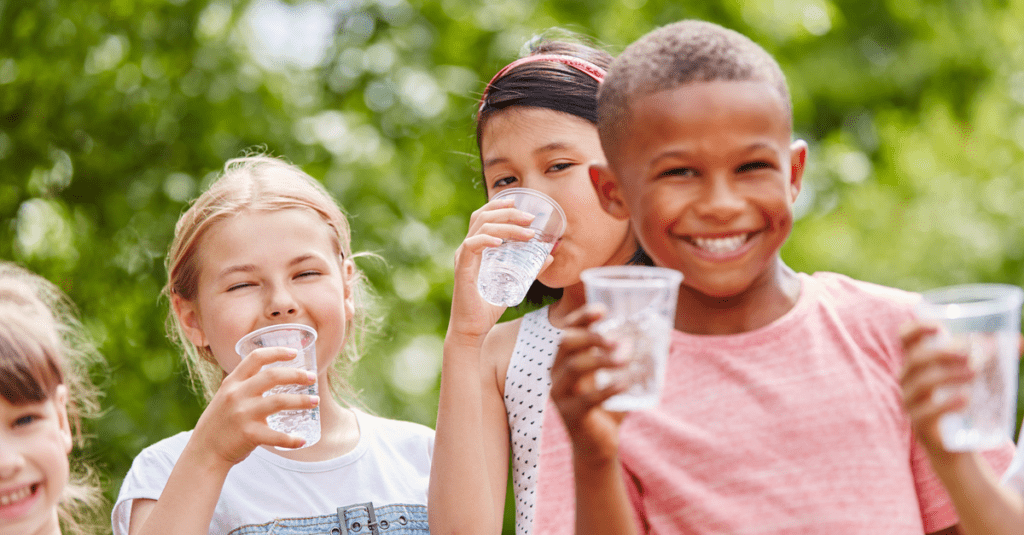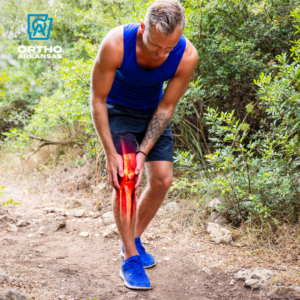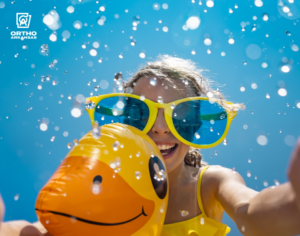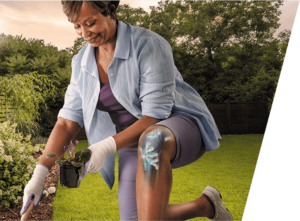Just as important as a healthy diet, our bodies need enough water to function at top speed. Proper hydration helps all of the moving parts work together from regulating temperature to avoiding cramps—and injury.
Drinking enough fluids is important for people of all ages and activity levels, and water plays a part in every major bodily function. Whether playing summertime sports, enjoying me-time on your favorite pool floatie, or relaxing on your patio–don’t forget to stay hydrated this summer.
Arkansas is known for its hot, humid summers. The average temperature is 93°F at the peak of July. Temperatures often exceed 100°F during the summer, and humidity levels range from 85% in the morning to 55% during summer afternoons. When humidity is high, sweat cannot evaporate as easily from your skin. Sweat cools the body, but when individuals are unable to sweat, body temperature rises. That combination means your body needs even more fluids to function properly.
Children, especially young athletes, may need a little extra help staying properly hydrated, so we’ve put together some hydration basics that are great for all ages.
Hydration for young athletes
ust a few years ago, a national study on hydration–the first of its kind–was conducted by Harvard T.H. Chan School of Public Health. Its findings were that more than half of all children and adolescents in the U.S. are not getting enough water. The study also found that chronic dehydration has significant effects on overall physical health, including cognitive and emotional function.
12 to 16 ounces of fluid prior to exercise or heavy exertion is the recommendation for a young athlete. Most physical trainers advise that the time to start water intake is about 2 hours prior to physical activity and to cease 30 minutes before games or practice. By taking this break, athletes can avoid cramps when it is go-time.
How much water is enough?
One way to determine the proper amount is to divide the athlete or person’s weight in half and drink a minimum of an ounce per pound throughout the day. For example, someone weighing 160 pounds should drink 80 ounces of water on a typical day. However, this amount should also be adjusted upon outside temperatures and physical activity level, and of course–age and health.
Identify Dehydration
Dehydration has several tell-tale signs including dry lips and mouth, drowsiness, and irritability. Another indication of dehydration is dark urine.
H2O vs. Sports drinks
Are sports drinks better than just drinking water? Sports drinks like Gatorade or Powerade can provide an energy boost during physical activity. These drinks are designed to rapidly replace fluids and to increase the sugar levels in the blood.
However, many experts suggest that adults and children should only have sports drinks during heavy exercise that lasts over an hour. Water is the best choice for hydration before, during, and after extended physical activity.
Be aware of overhydration
However, It is important to note that too much of anything, even water, can sometimes be a bad thing. Overhydration can occur and in some cases, be fatal. It is more common among endurance athletes who drink large amounts of water before and during exercise.
Some sports where overhydration is reported include:
- marathons and ultramarathons
- endurance cyclists
- triathletes
- rugby players
- hikers
The main symptoms of overhydration are headache, changes in mental state such as confusion or disorientation, and nausea/vomiting.
Hydration tips for adults
For adults or those less active, staying hydrated can be done with some simple tips.
Hydration Checklist
- Drink plenty of water
- Know dehydration signs
- Check your urine
- Cut back or avoid alcohol, caffeine, and sugary drinks
- Take a break to cool down
- Eat foods with high water content
- Replenish what you sweat
- Choose water during flights
With summer now in full swing, be sure to fill up that water bottle and stay hydrated all summer long.


